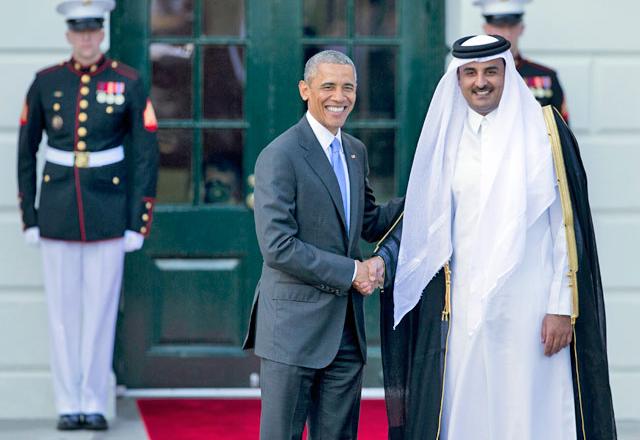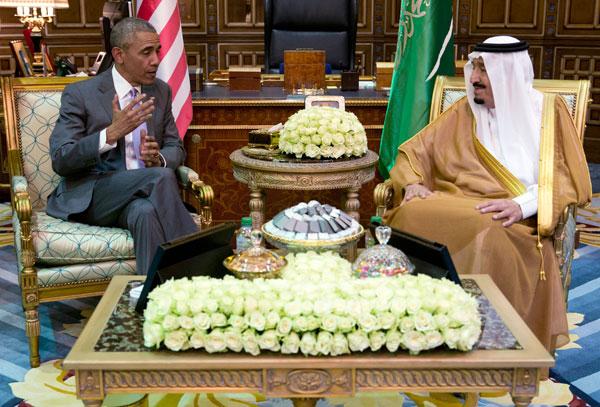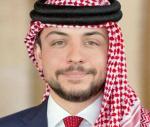You are here
Obama, Gulf countries to increase security cooperation
By AP - May 14,2015 - Last updated at May 14,2015

CAMP DAVID, Maryland — President Barack Obama sought to reassure Persian Gulf nations on Thursday that the United States is committed to their security, insisting a nuclear deal with Iran would not leave them more vulnerable.
Obama and leaders from the six Gulf Cooperation Council (GCC) countries met in a rare summit at Camp David, the presidential retreat. They were expected to issue a statement announcing new military commitments, including joint exercises and ballistic missile cooperation.
"We're really looking at what we can do to expedite the provision of support and capacity building to the GCC," said Ben Rhodes, Obama's deputy national security adviser.
While the US has long provided military support to partners in the Gulf, the new commitments are expected to extend into cyber, maritime and border security.
Obama's separate negotiations to curb Iran's nuclear programme in exchange for sanctions relief has strained relations with many of America's traditional partners in the region. Gulf states fear that if Iran gets an influx of money when sanctions are lifted, what they see as Tehran's aggression in the region could grow.
As the leaders gathered, an Iranian naval patrol boat fired on a Singapore-flagged commercial ship in the Persian Gulf. A US official said it was an apparent attempt to disable the ship over a financial dispute involving damage to an Iranian oil platform.
The incident took place south of the island of Abu Musa just inside the Gulf, according to the US official, who was not authorised to discuss details by name. The White House said no Americans were involved in the incident.
Rhodes said that while the incident did not come up in Thursday's discussions, it was "exactly the type of challenge" the Gulf nations are focused on.
Obama rarely uses Camp David for personal or official business. White House aides hoped the more intimate setting would lead to a more candid conversation with the Arab allies.
Just two other heads of state — the emirs of Qatar and Kuwait — joined Obama. Saudi Arabia, United Arab Emirates, Oman and Bahrain all sent lower-level but still influential representatives.
The most notable absence was Saudi King Salman. On Sunday, Saudi Arabia announced that the king was skipping the summit, two days after the White House said he was coming.
Crown Prince Mohammed Bin Nayef and Deputy Crown Prince Mohammed Bin Salman were representing Saudi Arabia instead.
The White House and Saudi officials insisted the king was not snubbing Obama. But there are indisputable signs of strain in the long relationship between the US and Saudi Arabia, driven not only by Obama's Iran overtures but also the rise of Daesh group militants and a lessening US dependency on Saudi oil.
The Gulf summit comes as the US and five other nations work to reach an agreement with Iran by the end of June. The White House says a nuclear accord could clear the way for more productive discussions with Iran about its reputed terror links.
Related Articles
Gulf Arab leaders will meet in Saudi Arabia next week to prepare for a May summit with US President Barack Obama, Kuwait's foreign minister was quoted as saying, with the summit expected to touch on Iran's nuclear programme and developments in Yemen.
Saudi Arabia is satisfied with assurances from US President Barack Obama about the Iran nuclear deal and believes the agreement will contrib
RIYADH — US President Barack Obama met Saudi Arabia's King Salman on Wednesday to seek joint action on security threats including Iran and t

















